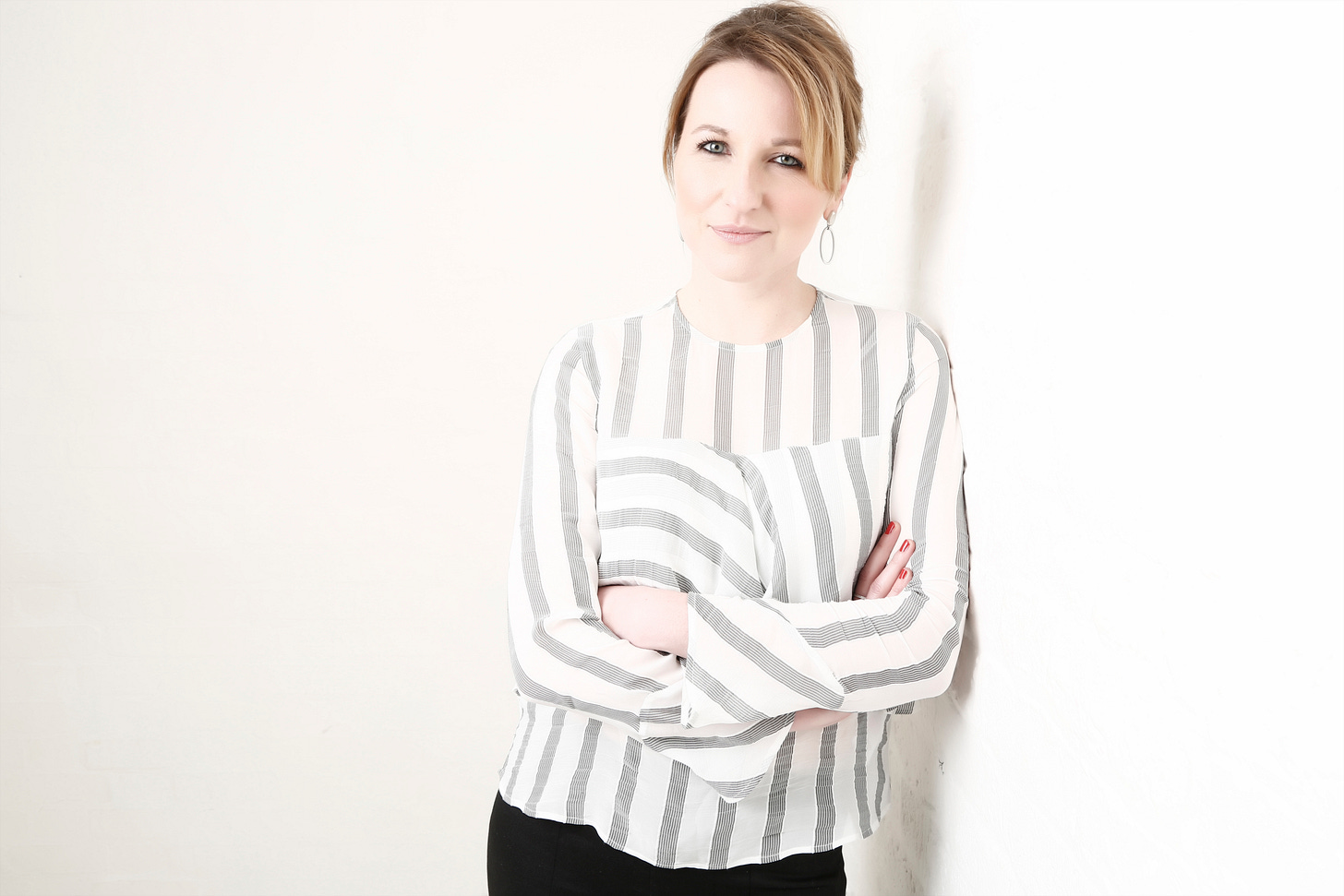Welcome to our #53 weekly newsletter.
Every week we curate key content and apply a female-lens so you can stay informed and inspired about money and investing.
Stay in the know.
Keep on top of global economic, financial and investing news and trends. And read about what this means for you and your money in 2021 during Covid-19 and beyond.
If you’re short on time, listen to the audio for a brief overview.
“For women who are taking control of their financial future”
-Jana Hlistova
From The Purse
Editorial from the Founder
Global stocks have gained $1.7tn in market cap this week: investors focus on liquidity support (ie government stimulus) and vaccine rollouts.
US stocks reached record highs as Joe Biden became the 46th US President on Wednesday. The market was led higher by technology stocks.
The US Treasury Secretary, Janet Yellen said that the US ‘must act big’ to revive the flagging economy. She underlined the new administration’s plans to press ahead with Joe Biden’s $1.9tn stimulus package.
Meanwhile the UK government’s borrowing has surpassed £250bn in the first 9 months of the fiscal year. This is double the level reached in the aftermath of the financial crisis.
Ether, the world's second-largest cryptocurrency, sets a new all-time high price. The price of ether hit $1,439.33 on January 18, overtaking its previous high of $1,432.88 recorded a little over three years ago.
Institutional interest in the cryptocurrency market continues: CoinShares has launched an exchange-traded Bitcoin product and BlackRock may start trading Bitcoin futures in its fund.
In the Future Focus section, fund managers see a ‘big reset’ in dividend payments after they were cut 44% last year due to the pandemic (UK) and ESG ETFs grew by 223% in 2020.
Netflix published its earnings report and has signalled stock buybacks are to come as subscribers hit 200m.
A survey carried out by UBS Group found that women’s setbacks in a Covid economy extend to the wealthy. For example, 61% of affluent U.S. women believe the Covid-19 outbreak is hurting their careers.
In the Have You Seen This? section, the court has ruled that the UK childcare payment system is discriminatory and irrational.
And some of the biggest British companies fail to meet targets for women on boards.
We’re tracking Bumble, a female-centred dating app where women initiate the first move, founded by Whitney Wolfe Herd. The company filed paperwork on Friday for an initial public offering (IPO).
Unlike many other technology companies, the majority of Bumble's board is made up of women. At 31, Whitney Wolfe Herd will become one of the youngest female CEOs in tech to take her company public.
And don’t forget to listen to The Purse Podcast interview with Cindy Gallop, founder & CEO of MLNP. (And here and here).
We talk female entrepreneurship, why the next big thing in tech is sex, fundraising, female investors, Cindy's $200m sextech fund, bitcoin and more.
Stay safe, look after yourselves and your loved ones.
I hope you enjoy this week’s newsletter. Until next week,
Jana
The Big Picture
Global markets and economy news, trends and indicators
Global stocks have gained $1.7tn in market cap (this week)
Investors focus on the liquidity support (ie government stimulus) and vaccine rollouts.
Business sentiment is improving in the US but not Europe.
US stocks reach record highs (Wednesday) as Joe Biden is sworn in as the 46th US President
The stock market was led higher by technology stocks.
Netflix reported stronger than expected earnings report that sent shares soaring nearly 20%.
US Treasury Secretary says US must ‘act big’ to revive flagging economy
Janet Yellen underlined the new administration’s plans to press ahead with Joe Biden’s $1.9tn stimulus package. (Historic low interest rates mean that it is ‘cheap’ to borrow).
She said: “Economists don’t always agree, but I think there is a consensus now: without further action, we risk a longer, more painful recession now – and long-term scarring of the economy later.”
UK government’s borrowing surpasses £250bn in the first 9 months of the fiscal year
The budget deficit (in the fiscal year) is approximately 20% of GDP.
This is double the level reached in the aftermath of the financial crisis.
UK inflation jumped to 0.6% in December (up from 0.3% in the previous month)
This is due to an increase in transport costs and rise in computer games console (and partially offset by cheaper takeaway prices and lower furniture and household prices).
Bitcoin & cryptocurrencies
Global news, trends and insights
Ether: world's second-largest cryptocurrency sets new ATH price
The price of ether hit $1,439.33 on January 18, overtaking its previous high of $1,432.88 recorded a little over three years ago.
The cryptocurrency, which is used by the Ethereum blockchain, is only surpassed by bitcoin in terms of overall value.
Ether has surged in value by 92% this year compared to bitcoin’s 27%.
Janet Yellen suggests curtailing cryptocurrencies, such as Bitcoin
On Tuesday, the US Treasury Secretary said cryptocurrencies were being mainly used for ‘illegal transactions’.
It is the latest sign that lawmakers and regulators are going to get touch on cryptocurrencies.
CoinShares started an exchange-traded Bitcoin product (19 January)
It be listed under the ticker BITC on the SIX Swiss Exchange.
CoinShares, which has about $4 billion in assets under management, was among the first to debut a crypto product.
BITC, which is launching with over $100 million in assets under management will hold the underlying assets it is designed to track. Each unit of the product will be backed with 0.001 Bitcoin.
BlackRock may start trading Bitcoin futures in its fund
BlackRock is the largest asset manager in the world, with more than $7.8 trillion assets under management.
On Wednesday, they submitted documents to the SEC today outlining its potential move into Bitcoin futures trading.
It will only be investing in cash-settled Bitcoin futures on exchanges registered with the CFTC.
Future Focus
Keeping an eye on key predictions, innovations and what’s going to impact the future
Fund managers see ‘big reset’ for dividends after pandemic (44% reduction)
In 2020, boards suspended or cut dividend payments to shore up balance sheets.
According to Link Group, a company that tracks financial ownership, dividend payments fell 44% in 2020 to £61.9bn — the lowest annual total in nine years.
Link said expectations for 2021 are “significantly more subdued” due to new lockdown measures. It predicts UK dividends will not regain their previous highs until 2025 “at the very earliest”.
2020 was something of a boom year for ETFs, which saw the sector grow to $189bn and record almost 200 new listings, after capturing $97bn of flows over the course of the year. There are now more than 540 ESG ETFs available.
(Due to the pandemic): many investors switched their usual holdings for ESG stocks as the merits of investing responsibly became more apparent.
ESG portfolios outperformed due to their higher exposure to the healthcare and technology sectors.
See the ESG Observatory: an online hub that provides tools, data and analysis on the global market for ESG ETF.
Companies: winners & losers
Companies to watch and share price movements
Netflix signals stock buybacks to come as subscribers hit 200m
Netflix will no longer raise debt to fund its ‘spending spree’ on television shows and films.
Since 2011, when Netflix has invested in original programming with House of Cards, acquiring content through via high-yield bonds.
Their strategy has been successful: the streaming giant had almost 204m subscribers at the end of 2020, having added 37m paying customers last year.
‘We believe we no longer have a need to raise external financing for our day-to-day operations’ Netflix said in a letter to investors, adding that it would explore stock buybacks.
Net income fell to $542m, from $587m a year ago, but the company’s cash flow position was significantly improved. For the quarter, the cash outflow was $284m, narrowing from $1.7bn a year ago.
The company said it expected to break even this year and be cash flow positive after that.
Your Money
Insights, trends and what this means for you and your purse
(US): Women’s setbacks in a Covid economy extend to the wealthy
The pandemic has been tough on working women -even those with high incomes.
A UBS Group survey found:
61% of affluent U.S. women believe the Covid-19 outbreak is hurting their careers.
40% said the pandemic has put pay raises and promotions on hold as they worked less to help their kids with school.
And 1 in 4 respondents said they’ve delayed retirement plans or considered leaving the workforce completely.
The pandemic has also prompted 68% of women to discuss money more frequently with their partners, and 49% to talk about inheritance with their kids, according to the UBS poll.
Have You Seen This?
Female-focused news, reports, research, campaigns
UK childcare payment system discriminatory and irrational, judge rules
Nichola Salvato, 49, from Brighton, had argued that the Department for Work and Pensions (DWP) requirement that she pay hundreds of pounds upfront to childcare providers before she could claim back the money through universal credit plunged her into debt and forced her to reduce her working hours.
The court ruled that the ‘proof of payment’ rule disproportionally discriminated against women.
Salvato’s legal challenge was supported by the charities Save the Children UK and Gingerbread, as well as the Professional Association for Childcare and Early Years and the National Day Nurseries Association.
Know this: women account for approximately 80% of all universal credit childcare payment claimants. Mr Justice Chamberlain said the childcare payment system will be used eventually by 500,000 UK parents when universal credit is fully rolled out, was irrational and subjected mothers to indirect sex discrimination under human rights law.
Biggest British companies fail to meet targets for women on boards
There are 33 companies in the FTSE 100 share index that have boards where women make up less than a third of its members.
They include Antofagasta, Imperial Brands and Flutter Entertainment, where women hold only a fifth of the seats.
The FTSE 250 is lagging behind. Aston Martin, the carmaker, does not have a single woman on its nine-member board, while Baillie Gifford, 4imprint Group, AJ Bell and Biffa are among those with only one.
Know this: research shows that gender diversity drives performance. And companies which have diverse boards, tend to better reflect their market and therefore tend to be more successful. Gender diverse boards tend to more ‘cognitively diverse’ which leads to more creativity and innovative thinking.
What We’re Tracking
Female and diversity-focused products or services, start-ups and businesses led by women/diverse founders, investment, crowdfunding campaigns and research.
Bumble (US)-founded by Whitney Wolfe Herd, is a female-centred dating app (women initiate the first move).
The company filed paperwork on Friday for an initial public offering (IPO).
According to its IPO paperwork, the Bumble dating empire counted 42.1 million monthly active users as of the end of September.
Unlike many other technology companies, the majority of Bumble's board is made up of women. At 31, Wolfe Herd will become one of the youngest female CEOs in tech to take her company public.
Whitney wrote in the letter to investors:
‘Our long-term vision is to be the platform to meet new people, no matter what you might be looking for, whichever life stage or situation you're in’.
It will list on the Nasdaq under the stock ticker ‘BMBL’.
Coffee Break? Read This
We’d love to hear from you. Get in touch with Jana via the The Purse website or tweet @jointhepurse and @janicka.
The Purse Ltd. Copyright 2021 & All Rights Reserved.


















Share this post